Global standards of beauty: From ivory to ebony
Make-up companies are trying their best to cope with the changing global standards of beauty.
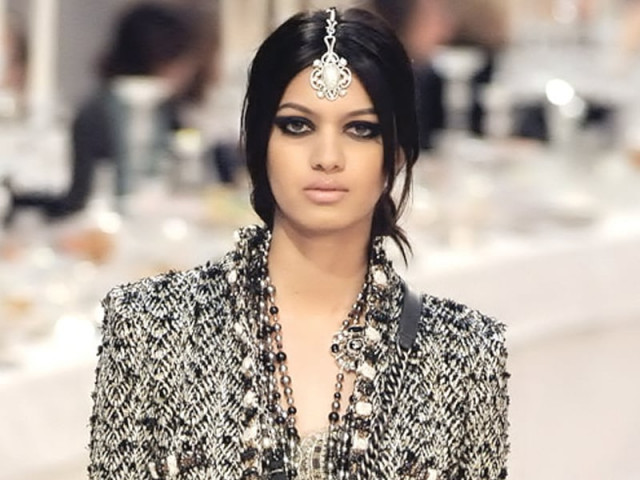
Keen on maintaining their hold on the global beauty marketplace, an increasing number of cosmetic manufacturers have extended their advertising campaigns to incorporate multiculturalism.
The new face of Lancome, for example, is 22-year-old Hanaa Ben Abdesslem, a Tunisian Muslim, who joins the ranks of Isabella Rossellini, Julia Roberts, Kate Winslet and Emma Watson to represent the French brand worldwide. Youcef Nabi, President of Lancome International states, “Her universal beauty simply channels the je-ne-sais-quoi that makes the uniqueness, strength and charm of every Lancome woman.”
In Hollywood, Paris and Milan, ebony-skinned, dark-eyed Indians are steadily growing in demand: model Ujjwala Raut, a significant success on international runways and designer ads, rising movie star Freida Pinto and Chanel’s latest discovery, Jyothsna Chakravarthy, are considered exotic beauties. Funnily, they are a far cry from mainstream concepts of beauty in Asia, where skin-whitening is a multimillion-dollar industry and where coloured lenses are a routine for actors, models and socialites.
North American Entrepreneurs:
It’s not just major companies that are targeting women with complexions from palest mocha to dark chocolate and sandy beige to tawny bronze. Start up boutique beauty and cosmetic brands have sprung up in recent years by women entrepreneurs of South Asian descent:
Chamak Cosmetics was founded in 2010 by Texan make-up artist Sarah Ali after working at Chanel, YSL, MAC and Calvin Klein. “I noted what colours most women, in addition to medium to dark women, wanted and could never find: rich golds, bronzes, coppers and vivid shades. Women were also looking for natural looking, warm-based foundations which still weren’t formulated perfectly since the traditional cosmetic bases were for pink and peach skin tones,” she stated. Chamak products include Ada and Meethi Lipsticks, Jaanbaz and Shikari Eyeshadows, as well as apricot-hued Hema Blush.
Orissa Cosmetics launched in the UK in 2008 after founders Bhimal Hira and Mona Parekh “noticed women with darker skin tones were under-represented in the mainstream cosmetics industry”. According to Hira, “The Honey and Tender shades are two of our bestselling foundation. Gold, Bronze and Amethyst are the bestselling eye shadows.”
Thevi Cosmetics was created for the ‘New Ethnic Market’ — for every light-to-dark skinned woman for whom “beauty is a way of empowerment in a world where they must balance their dual traditional and American identities,” according to the founder Thevaki Thambirajah. A New Yorker of Sri Lankan descent, Thambirajah gained work experience at Revlon and Coty prior to launching Thevi (brand liquidated in 2011).
Vasanti Cosmetics, founded by desi-Canadians Pinki, Priti and Monal in 1999, carries 140 products and retails in over 300 stores across Canada. “What makes our selection great for South Asian skin, is that our shades contain yellow and olive undertones that work brilliantly to give a natural look, without giving that white, chalky appearance,” describes company representative Chereiva Pointer. Interesting products to try include Vasanti Lip & Cheek Putty and Wonders of the World Concealer.
Global Goddess is an American brand launched in 2006 by Shalini Vadhera (who resigned in 2010) using exotic and natural ingredients. Products include an Ultimate Bollywood Make-up kit and the Global Goddess Beauty Coconut Amla Lash & Brow Conditioner that also contains grape seed, apple extract, nettle and horse chestnut.
Meanwhile, in Pakistan:
One may regard wearing make-up as part of this country’s ancient heritage; our Indus Valley predecessors were among history’s earliest users of lipstick, after all. In the 80s and 90s, consumers were restricted to brands like Medora and Swiss Miss and the occasionally smuggled international cosmetic brands displayed at shops, with no testers. However, now cosmetic racks of L’Oreal, Rimmel, Maybelline and Color Studio Professional provide consumers with some variety. A new breed of women entrepreneurs, such as TV personality Atiqa Odho (Atiqa Odho Cosmetics) and Mehrbano Sethi (Luscious Cosmetics), address the needs of a medium income demographic with their homegrown brands created and developed in Pakistan.
Multicultural Palettes:
MAC, Nars, Stila and Make-Up Forever have been longtime favourites among Asians, Hispanics and African Americans for their richly pigmented cosmetics. Estee Lauder brands like Prescriptives (discontinued in 2010), Bobbi Brown, Clinique and Origins have notably included shades of foundation for darker women. In 1994, Somali-born former supermodel and Mrs David Bowie’s Iman Cosmetics was created to specifically cater to “women of all skin colour”. Cover Girl’s All-American brand of “easy, breezy, beautiful” cosmetics have long since featured diverse models, while L’Oreal included Aishwaria Rai-Bachchan in their worldwide ad campaigns.
Published in The Express Tribune, January 23rd, 2012.


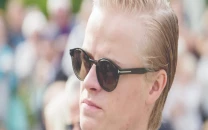
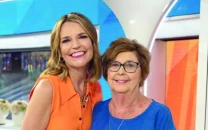
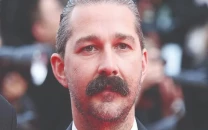

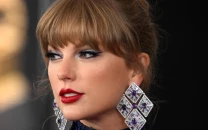












COMMENTS
Comments are moderated and generally will be posted if they are on-topic and not abusive.
For more information, please see our Comments FAQ